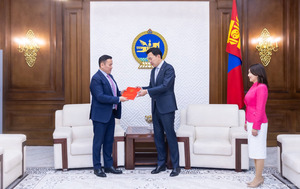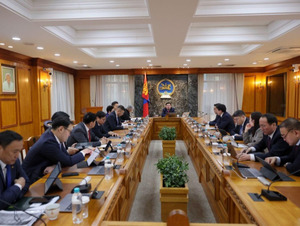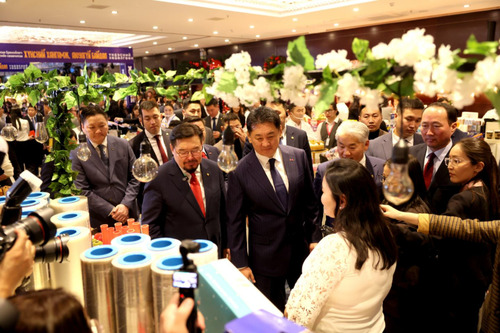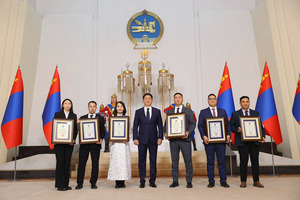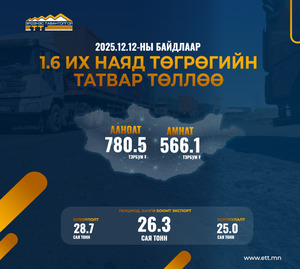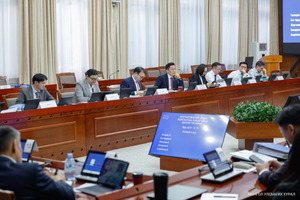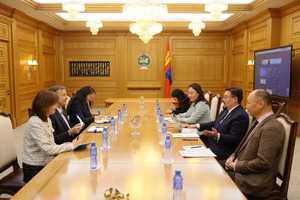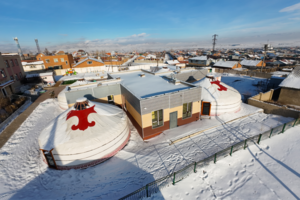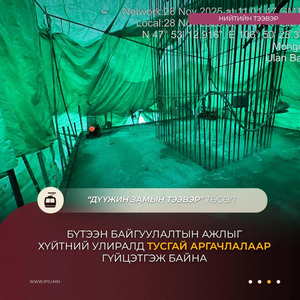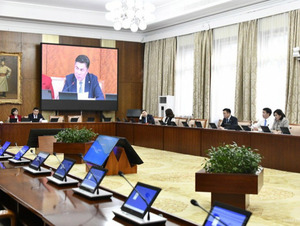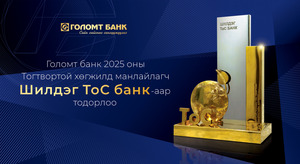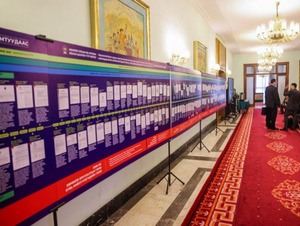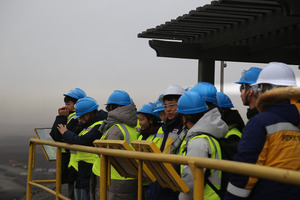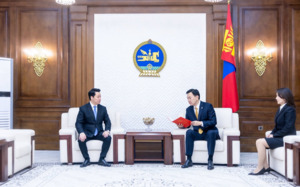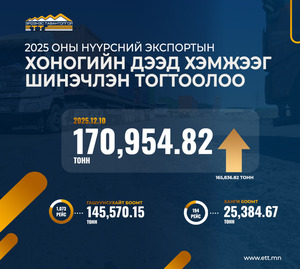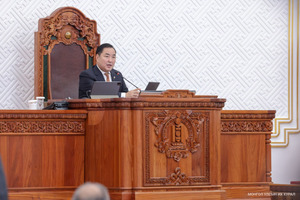 In 1990 Mongolia abandoned its 70-year-old Soviet-style one-party state and embraced political and economic reforms.
In 1990 Mongolia abandoned its 70-year-old Soviet-style one-party state and embraced political and economic reforms.
Democracy and privatisation were enshrined in a new constitution, but the collapse of the economy after the withdrawal of Soviet support triggered widespread poverty and unemployment.
However, Mongolia sits on vast quantities of untapped mineral wealth, and foreign investment in a number of massive mining projects has been transforming its economy.
The country has been one of the world"s fastest growing economies in recent times, driven by this foreign direct investment. It reported high growth rates in 2011 and 2012, but over the past two years growth has slumped dramatically.
A fall in prices for key commodities, together with a long-running dispute with foreign investors over the giant Oyu Tolgoi copper mine have been partly to blame.
Once the heartland of an empire stretching to Europe under Genghis Khan, Mongolia is a landlocked country dominated by sparsely populated steppe and semi-desert.
Mongolia spreads across 1.5 million sq km of the Central Asian plateau, but its population is far smaller than the Mongol population of China.
Muslim Kazakhs in the west are the only significant national and religious minority, comprising less than 5% of the population. Migration to Kazakhstan in the 1990s reduced their numbers.
A third of the population lives in the capital, while around forty percent of the country"s workforce herds livestock in the extensive pasturelands. However, the centuries-old nomadic lifestyle is coming under pressure from climate change and urbanisation.
Mongolia has an extreme climate, with a temperature range to suit. Drought and unusually cold and snowy winters have decimated livestock, destroying the livelihoods of thousands of families.
Mongolia has expanded political and financial ties with the US, Japan and the European Union, but its main trading partners are neighbouring Russia and China. The latter is the gest market for Mongolian exports; Beijing is also keen to exploit Mongolia"s mineral and energy resources.
The legacy of Genghis Khan, the warrior who united warring tribes and established the Mongol empire in the 13th century, has often been invoked in an attempt to foster national pride.



